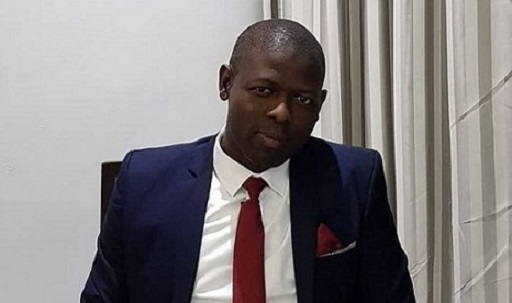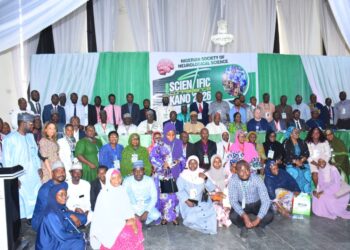Supreme Court Did Not Whittle Down EFCC Powers Over Economic And Financial Crimes Decision In Joseph Nwobike SAN VS. FRN
By Ibrahim Ahmad Kala, LL.M
The Economic and Financial Crimes Commission (EFCC) is a Nigerian law enforcement agency that is responsible for the investigation of economic and financial crimes such as bribery and corruption, money laundering, embezzlements, and advance fee fraud – (which people often referred to as 419-fraud as derived from the famous Section 419 of the Criminal Code Law relating to offences of obtaining money or property by false pretenses and cheating). Although, the Act establishing the Commission was initially enacted in 2002 and amended in 2004 where its clothes the Commission with the powers to entertain complaint, investigate, and prosecute all economic and financial crimes under the Act and all other laws in enforce in Nigeria, the Commission was launched in response to mounting pressure from the Financial Action Task Force on Money Laundering founded in 1987 by G7 to tackle the vices of money laundering across the globe, where Nigeria was ranked low in the international community’s efforts to fight money laundering and financial crime. The United Nations Convention against Corruption which the UN General Assembly Resolution 58/4 of 31st October 2003, concretized it.
The case of Dr. Joseph Nwobike SAN vs. the Federal Republic of Nigeria; SC/CR/161/2020
The brief fact of the case was as follows. Dr. Joseph Nwobike, SAN was accused by the anti-graft commission for being in constant communication with court officials to influence the assignment of his cases to his preferred judges. He was also accused of offering monetary gratification to judges of the Federal High Court to influence them to give judgments in his favour.
Dr. Nwobike was alleged to have given N750,000 to Justice Yunusa, while he had cases pending before the judge and having constant communication, through text messages, with the registrar of the Court.
It was also alleged that at one occasion, the lawyer gave an envelope, to be containing money, to one Mrs. Helen Ogunleye to give to the judge, and followed up with a message that the registrar should tell “him to discharge the order.”
Justice Raliat Adebiyi of the Lagos State High Court, Ikeja on May 2018 found Nwobike guilty of 12 out of 18 counts charges bordering on attempt to pervert the course of justice. The judge sentenced him to one month imprisonment on each of the 12 counts and said the sentences would run concurrently. In other word, Nwobike would served for only one month imprisonment for all the 12 counts.
Dissatisfied with the judgement, Nwobike, who had since served his sentence, appealed the Lagos High court’s decision to the Court of Appeal on 13 grounds which includes the allegations that the learned trial judge erred in law and came to a wrong conclusion when, in spite of the learned trial judge’s own finding that “S. 97(3) of the Criminal Law of Lagos State, No. 2011, pursuant to which the Defendant (Dr. Nwobike) stands charged does not define or describe the manner of perversion of justice anticipated under this provision”, and nevertheless, proceeded to convict the Appellant under the said section relying only on the Oxford Advanced Learners Dictionary and Rules 30, 31(5) and 34 of the Rules of Professional Conduct for Legal Practitioners 2007.
The appeal was heard and consequently, dismissed by a three-man Coram judice: Joseph Ikyegh, Jamilu Tukur and Ebiowei Tobi, JJCA where they unanimously affirmed that the lower court properly convicted the lawyer in accordance with Section 97(3) of the Criminal Law of Lagos State.
Still not satisfied, Dr. Nwobike further appealed to the Supreme Court.
The first issue in the appeal before the apex court questions the power of the EFCC to investigate and prosecute Nwobike SAN, (the Appellant) for the offence of attempt to pervert the course of justice as contained in Counts 7–11, 13, 15 –17 of the Amended Information.
After reviewing the arguments of the parties in respect of the first issue, the apex court held as follows:
“..the test for ascertaining if a criminal conduct can be regarded as an economic and financial crime is such that must be a non- violent criminal and illicit activity committed with the objective of earning wealth. I do not think it will be safe to regard the offence of attempt to pervert the course of justice which the Appellant was convicted for, where it has not been shown that it was committed with the objective of earning wealth, and be regarded as an economic and financial crime, thereby vesting the power to investigate and prosecute in the Economic and Financial Crimes Commission. The result, in my view therefore, is that the Appellant has discharged the burden of showing that the definition of “economic and financial crime” in section 46 of the EFCC (Establishment) Act admits of intention to apply the ejusdem generis rule, as only by so doing can we give effect to the meaning of “any form of corrupt malpractices” in the context of economic and financial crime. Accordingly, I am unable to accept, the submissions of learned Counsel for the Respondent that the offence of attempting to pervert the course of justice under section 97(3) of the Criminal Law of Lagos State No.11 of 2011 is an economic and financial crime, which the EFCC is empowered to investigate and prosecute. Consequently, Counts 7 – 11, 13, 15 – 17 of the Amended Information have no foundation, and since the aforesaid counts are the only ones upon which the Appellant was convicted and sentenced it follows therefore, that the case of the prosecution was not erected on any pedestal whatsoever, it did not come before the Court initiated by due process of law; the trial court therefore lacked jurisdiction and ought to have declined jurisdiction.”
It is very clear from the above determination of the first issue by the Supreme Court that the powers of the EFCC is reaffirmed and confined, as it should be, to economic and financial crime related cases and does not include offence of attempt to pervert the course of justice in Nigeria.
However, going further in the final determination of the remaining second, third and fourth issues fused together by the apex court, and which it’s observed is centred on the complaint in connection with the propriety or otherwise of the decision of the Court of Appeal to consider and determine the question whether the offence of attempt to pervert the course of justice constituted in section 97(3) of the Criminal Law is defined in the absence of an appeal by either the EFCC or Nwobike against the decision of the Lagos State High Court on that point.
Although, the apex court faulted the Court of Appeal in reformulating new issue along that point which was outside the issue or complaint made out by the parties to the appeal in the Court of Appeal having not been covered by any ground of Appeal, the apex court held as follows:
“By necessary inference therefore, no ground of appeal questions the decision made by the trial (Lagos) High Court to the effect that section 97(3) of the Criminal Law of Lagos State does not define the manner of perversion of justice upon which the Appellant could be tried and convicted.”
The law is rock solid, that court is limited in its decision making to only the issues before it, and it has no business whatsoever delving outside the issues.
Thus, the finding of Adebiyi j. of the Lagos State High Court to the extend that section 97(3) of the Criminal Law of Lagos State offends the provisions of and is inconsistent with section 36(12) of the Constitution of the Federal Republic of Nigeria 1999 (as amended) having not define the offence for which Dr. Nwobike was charged, tried and convicted (which at worst may only amount to breach of Rules of Professional Conduct of Legal Practitioners), remain the current position of the Law against the EFCC.
Therefore, the Supreme Court did not whittle down the EFCC powers over economic and financial crimes cases, but powers outside it scope or mandate such as “perversion of justice”, going by this recent decision in Dr. Joseph Nwobike SAN vs. FRN.
Indeed, the jurisdiction of the anti-craft agency over persons and complaints bordering on corruption and other financial crimes across the Nigerian federating states remain intact, and unassailable.
Share your thoughts on the piece Supreme Court Did Not Whittle Down EFCC Powers Over Economic And Financial Crimes Decision In Joseph Nwobike SAN VS. FRN with OnlineNews in the comments section.






























